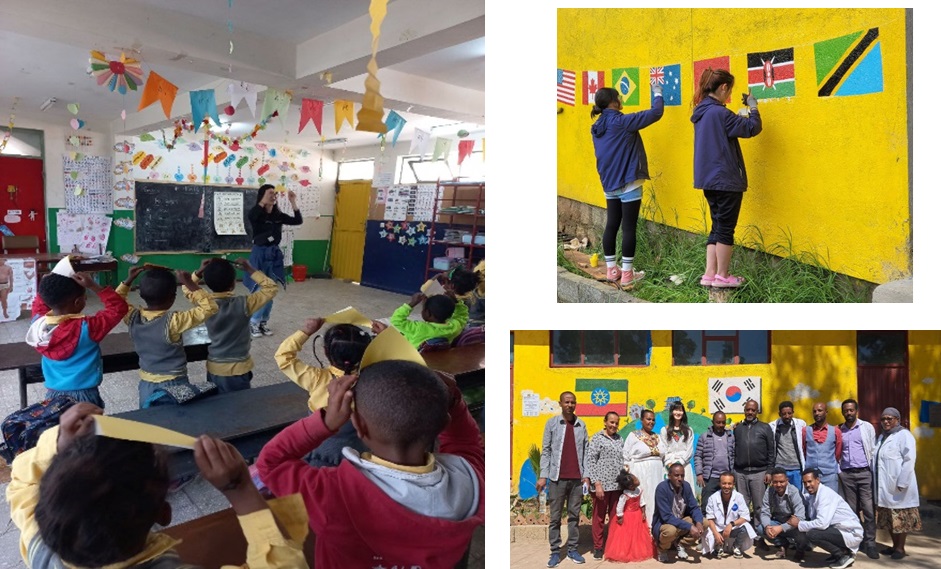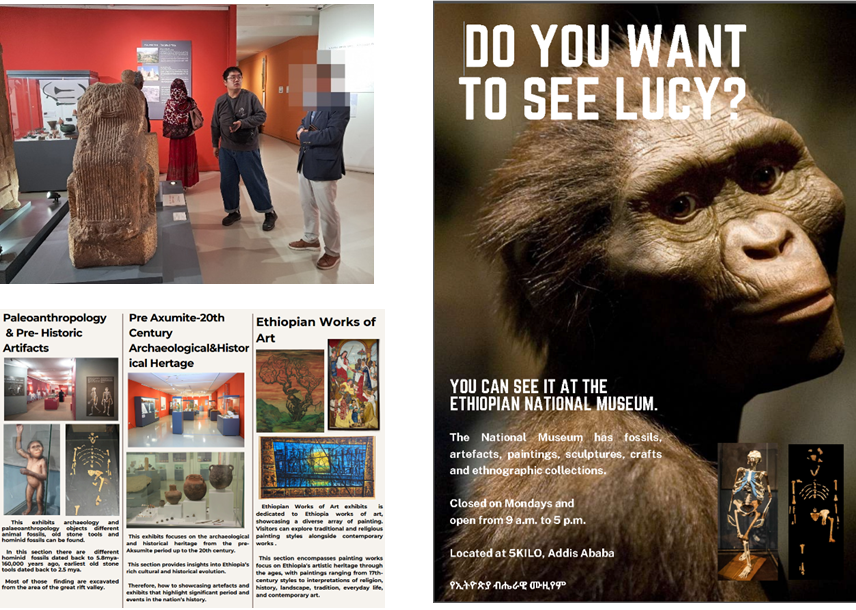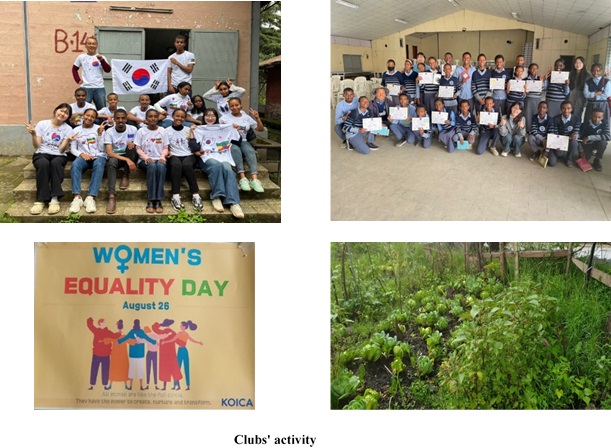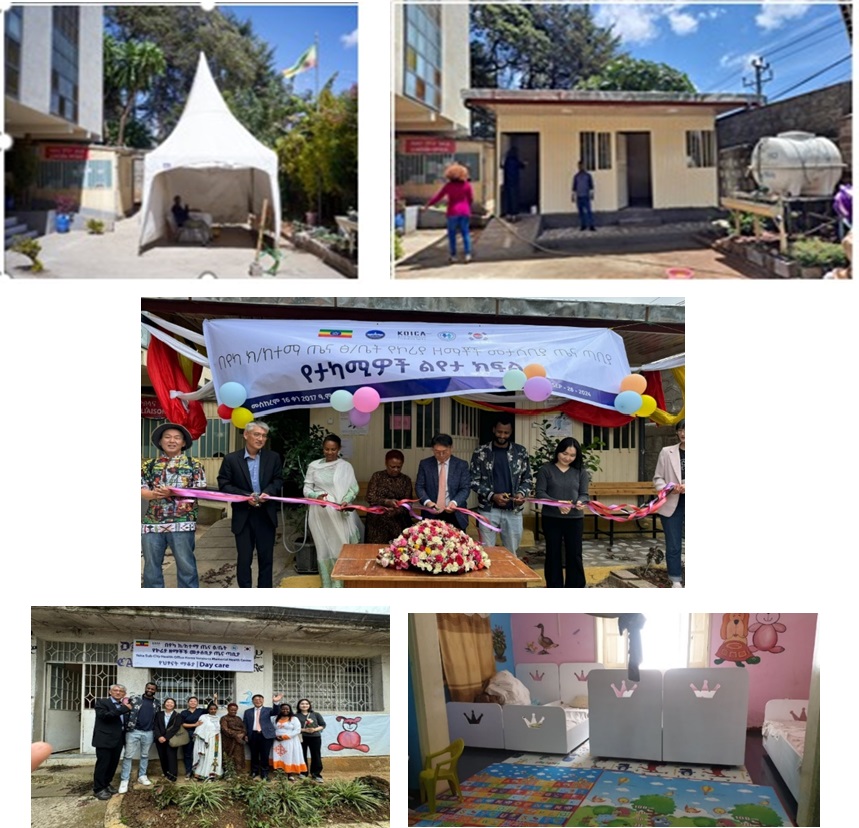KOICA Volunteers Make a Difference in Addis Ababa Communities
28 January, 2025
In 2024, eleven dedicated volunteers from the Korea International Cooperation Agency (KOICA) brought their skills and passion to Addis Ababa, Ethiopia, making significant contributions to various community institutions. These volunteers, including two regular volunteers and nine project volunteers (PVs), served at Hibret Fire Primary School, the Ethiopian National Museum, Dagmawi Menelik Secondary School, and the Yeka Woreda 4 Korea Veterans Memorial Health Center, each leaving a lasting positive impact.
1. At Hibret Fire Primary School, Jung Eunyoun, a KOICA volunteer, focused on enriching preschool education. She shared her knowledge and experience with the teachers, providing training in developing effective teaching aids. She also engaged students using a play-based learning methodology, making the learning experience both fun and effective. Beyond instruction, the volunteer beautified the school environment by painting vibrant murals on the walls of the classrooms. She further enhanced the learning environment by donating textbooks and other essential stationery for teaching aid development, ensuring a richer learning experience for the students. She provided the voluntary service for two years.

2. At the Ethiopian National Museum, Kim Youngjae, a KOICA volunteer, was instrumental in promoting tourism. He developed informational brochures in both Amharic and English, designed to attract more visitors to the museum. He also designed and produced a visually outstanding “Lucy” poster, adding an engaging element to the museum’s exhibits. His contributions helped to enhance the museum’s promotional efforts and attract the public.

3. Six volunteers, Heuigyun Ahn, Choi Sun, Kim Gabin, Kim Nayeon, Kim Young Seo, and Sin Yeong Lee, served at the Dagmawi Menelik Secondary School, which focused on empowering students through extracurricular activities. They formed and strengthened various clubs, including environmental, disability awareness, music, newspaper, gender, teachers, and culture clubs. These clubs provided a platform for students to explore their interests and, engage in cultural exchange between Korean and Ethiopian cultures. The volunteers also conducted a health checkup campaign for about 700 people, including students, teachers, and parents, as a joint activity with other volunteers and invited health professionals. Every week, the environmental club members, along with teachers, conducted cleaning campaigns and planted various vegetables and fruits. The volunteers also taught students mathematics, alongside ‘Lunch with Mr. Ahn’, a program to support and discuss with visually impaired students. To support the school with technology, the volunteers also provided many computer maintenance services for the teachers and other staff. The newspaper club developed two newsletters for the school by engaging interested member students. Additionally, a chicken house was built and stocked with 30 chickens. Selected students were then made responsible for their care after the volunteers left. The volunteers also implemented a ‘library environment improvement’ small-scale project, purchasing more than 300 books, including braille books, as well as 75 chairs, 16 long tables (with partitions), and 2 bookshelves, creating a more enriching and comfortable space for students, which motivated many students to use the library for reading. The one-year presence of the volunteers in the school created a unique learning opportunity for many students.


4. The three volunteers assigned to the Yeka Woreda 4 Korea Veterans Memorial Health Center, Mr. Kim Jong Hag, Hwang Juhwa, and Lee Junghyun, provided vital support to the center staff and patients. They led a series of weekly education sessions for four months focusing on crucial topics such as infection prevention, contamination reductions, diabetes, breast and cervical cancer, antimicrobial resistance (AR), hand washing, and media ethics. They also implemented a project constructing a pre-triage area (patient screening room), which had previously been using a tent, significantly improving the health care service. Furthermore, they equipped the daycare center with the necessary materials, such as beds, toys, puzzles, drawing books, a water filter, mats, and kitchen appliances. As their contribution to the staff, the volunteers prepared and delivered standardized ID cards to 184 employees to better manage the health center’s service delivery.

Through their hard work and dedicated efforts and commitments, these 11 KOICA volunteers demonstrated the influence of cooperation, making a lasting positive impact on communities while strengthening meaningful and enduring relationships between Koreans and Ethiopians.